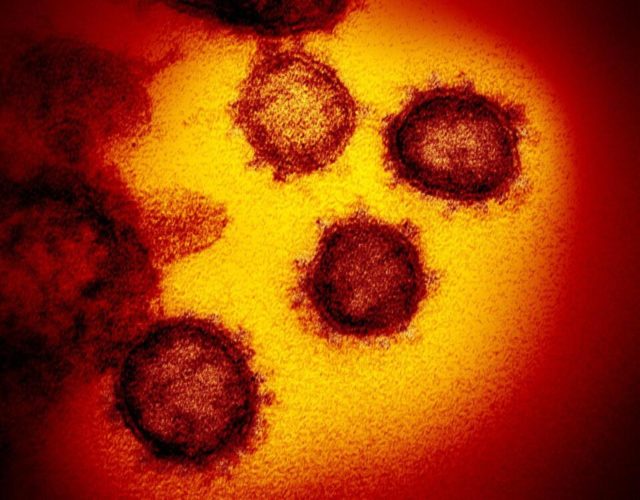SA team utilising nanobodies for rapid antibody testing to detect and in the future potentially treat Covid-19.
IMAGINE a breathalyser or pregnancy test but instead of their traditional functions, they tested for Covid-19.
These are the biotechnological strides being made by a South African team utilising nanobodies for rapid antibody testing to detect and in the future potentially treat Covid-19.
Nucleic acid testing, the primary Covid-19 method, requires a laboratory, trained personnel and closed proprietary systems which can hamper access, but these new advances hope to avoid these hurdles.
Professor Tahir Pillay, head of pathology and chemical pathology at the University of Pretoria, the University of KwaZulu-Natal’s Professor Anil Chuturgoon, Bettina Chale-Matsau a pathologist from the National Health Laboratory Service and businessman Reggie Govender are the team behind MikroMab Diagnostics – the company with the latest innovation.
Chuturgoon described the nanobodies as antibodies that were significantly smaller than those typically found in humans.
“The nanobodies being used are cloned from two alpacas which were originally housed at the Mitchell Park Zoo for another project but we can now generate these nanobodies in our laboratory without the animals.
“The nanobodies are naturally present in the animal but not humans.
“We are currently conducting enzyme-linked immunosorbent assays, a test used to detect and measure antibodies in your blood, to check the sensitivity and specificity of the nanobody against the Covid-19 spike protein.
“Nanobodies are more sensitive and better at detecting the virus. They also do not require refrigeration which adds to their robustness,” he said.
Chuturgoon said the goal was to create a cheap and accessible testing kit, similar to a pregnancy kit, that used saliva and could be done at home without the need for a laboratory.
Pillay said another means of detection with the nanobodies was an electronic biosensor.
“The biosensor is meant to detect Covid-19 in the air and give an instant readout of the presence of the virus.
“We are collaborating with a Taiwanese company called Molsentech which has the electronic capacity to assist with prototypes,” he said.
As a future avenue, Pillay, said the team was exploring therapeutic applications to treat Covid-19.
“Antibodies engineered against the major Covid-19 proteins have the potential to be used in therapy either by injection or inhalation.
“We have produced nanobodies against the spike protein that neutralise viral replication making them highly applicable for Covid-19 treatment.
“The spike protein is the basis for the current Covid-19 vaccine in the country.
“The idea behind the vaccine is to stimulate the body to produce antibodies against the spike protein, enabling it to block the virus from entering cells, which is what causes the infection.
“Nanobodies, if administered via the lungs, will prevent viral particles from binding to cells.
“We know the nanobodies bind to sites on the SARS-CoV2 that are not part of the variations, so believe that they will be equally effective on variants.
“We have the ability to genetically alter the structure of the nanobodies to deal with any future variants.”
Pillay said there were plans and discussions to build a mass production facility in the KwaZulu-Natal.
Govender handled the strategic manoeuvring and commercial financing for the project.
“The pandemic has accelerated the scientific agenda, the goal is now to capitalise on these advances to promote sustainable economic growth and development and nurture other biotechnological start-ups.
“It is a win-win situation for the country.
“The NHLS is a national asset with all the infrastructure and support and with us working with them we benefit from their capabilities and they benefit from our science,” he said.
The University of Pretoria ethics committee and the UKZN ethics committees approved the production of the nanobodies.
Currently, the work was laboratory-based but the South African Health Products Regulatory Authority would be approached for product trials to commence.
Chale-Matsau and the Taiwanese team were contacted for comment but had not responded at the time of publication.








